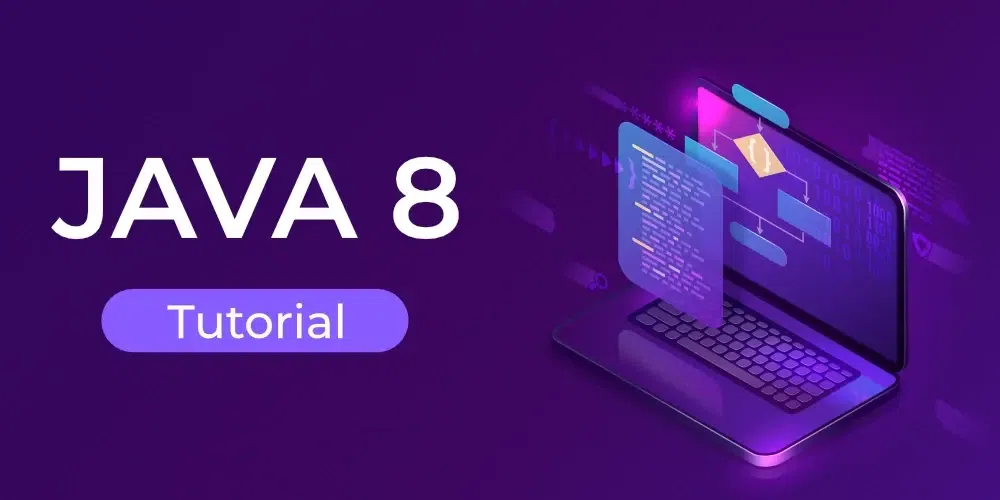Java 8 Features – Complete Tutorial
Last Updated :
26 Jun, 2024
Java 8 is the most awaited release of Java programming language development because, in the entire history of Java, it never released that many major features. It consists of major features of Java. It is a new version of Java and was released by Oracle on 18 March 2014. Java provided support for functional programming, new Java 8 APIs, a new JavaScript engine, new Java 8 streaming API, functional interfaces, default methods, date-time API changes, etc.

Major Java 8 Features Introduced
There are a few major Java 8 features mentioned below:
- Lambda Expressions: Concise functional code using
->.
- Functional Interfaces: Single-method interfaces.
- Introduced and Improved APIs:
- Stream API: Efficient Data Manipulation.
- Date/Time API: Robust Date and Time Handling.
- Collection API Improvements: Enhanced Methods for Collections (e.g.,
removeIf, replaceAll).
- Concurrency API Improvements: New classes for parallel processing (e.g.,
CompletableFuture).
- Optional Class: Handle null values safely.
forEach() Method in Iterable Interface: Executes an action for each element in a Collection.- Default Methods: Evolve interfaces without breaking compatibility.
- Static Methods: Allows adding methods with default implementations to interfaces.
- Method References: Refer to methods easily.
This Java 8 tutorial covers all the important Java 8 features like Java 8 APIs, Java arrays, Java 8 ArrayList, and many more included in the Java 8 programming language. To explore detail features of Java language you can explore Java course, in this course you will get a free full beginner to advanced topics of Java programming.
Java 8 Features
Lambda Expressions
Lambda Expression basically expresses an instance of the functional interface, in other words, you can say it provides a clear and concise way to represent a method of the functional interface using an expression. Lambda Expressions are added in Java 8.
Functional Interfaces
An interface that contains only one abstract method is known as a functional interface, but there is no restriction, you can have n number of default and static methods inside a functional interface.
Method Reference
Method reference is a shorthand notation of a lambda expression to call a method. There are four types of method references that are as follows:
- Static Method Reference
- Instance Method Reference of a particular object
- Instance Method Reference of an arbitrary object of a particular type
- Constructor Reference.
Example:
numList.stream().filter(n -> n > 5).sorted().forEach(System.out::println);
Streams
Stream API is introduced in Java 8 and is used to process collections of objects with the functional style of coding using the lambda expression. So to understand what stream API is, you must have knowledge of both lambda and functional interfaces.
Java Stream Programs
Java Streams provide a powerful and expressive way to process sequences of elements in Java, enabling functional-style operations on collections of data. The Stream API, introduced in Java 8, facilitates efficient data manipulation and transformation using a sequence of operations that can be performed in parallel or sequentially
. Java Stream Programs will give a clear view to the topic:
Java Stream Methods
Methods related to one of the most powerful features of Java Stream are mentioned below.
Comparable and Comparator
Comparable and Comparator are interfaces used to order objects. They are particularly useful in sorting operations and collections that require natural ordering. Here we will learn about Comparable and Comparator in depth.
Optional Class
Date/Time API
This section gives you to handle the ever-changing world of dates and times within your Java programs. Explore working with calendars, timestamps, and time manipulation – essential skills for building applications that deal with deadlines, scheduling, or even historical data analysis.
Miscellaneous
Java is a versatile and powerful programming language that encompasses a wide range of features and tools, enabling developers to build robust, high-performance applications. Let us learn some Java Miscellaneous topics are mentioned below:
Conclusion
Java 8 has brought many exciting features that make it a powerful tool for developers. With the introduction of Lambda expressions, Stream API, and new Date and Time API, Java 8 has improved code efficiency and readability. These Java 8 features allow developers to write more flexible and concise code, making their work easier and more enjoyable. Overall, Java 8 continues to be a valuable update that has significantly enhanced the Java programming language.
Java 8 Features – FAQs
Q1: What are the features of java8?
- default and static methods
- Functional Interfaces and Lambda Expressions
- Collection API
- Java Time API
- forEach() method
- Concurrency API
- Java Stream API
Q2: What advantages does Java 8 bring?
- Code is more concise and readable
- Code is more reusable
- Code is more testable and maintainable
- Code is now both callable and concurrent
- Users can write parallel code
- Users can write database-like operations
- Applications now perform better
- Code is far more productive
Q3: What is a functional interface?
A functional interface is an interface that contains just one abstract method.
Q4: How are functional interfaces and Lambda Expressions related?
Lambda expressions are applied only to the functional interface’s abstract method.
Please Login to comment...